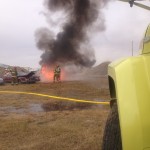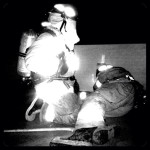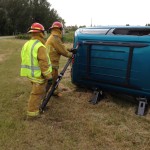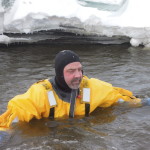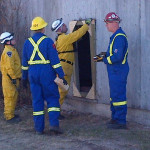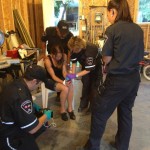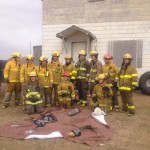Fire, Rescue, Dangerous Goods, and Medical
Dalmeny Fire and Rescue conducts regular training on a weekly basis. In addition, there are several weekend training sessions interspersed throughout the year.
Weekly training is conducted on a rotating schedule.
Topics include:
Fire
Fire suppression, pumping operations, Fire rescue and building searches, ventilation, and wildland firefighting – as an example.
Rescue
Vehicle extrication, ice rescue, confined space and high angle technical training.
Dangerous Goods Response
Focuses on operational based responses to spills and unplanned releases of Dangerous goods from transportation, agricultural, or industrial sources.
Medical
A substantial percentage of the annual responses to assist the public include emergency medical calls.
Our fire department’s medical personnel’s training consists of a range of levels from First Aid and CPR, First Responder, Emergency Medical Responder, Primary Care Paramedic, Intermediate Care Paramedic and Advanced Care Paramedic. A core element of our training focuses on thorough medical and trauma assessments and this is an essential foundation for every medical call that we attend. Considerable effort is afforded to training evolutions that focus on medical and trauma related skill sets, patient packaging in rescue situations, pediatric, and geriatric emergencies.
Firefighter Recruits
All new recruits are required to attend the NCPFCA (North Corman Park Fire Chiefs Association) fire school. Through their attendance and competency evaluation process each student is trained to current NFPA 1001 Level I&II standards (Firefighter Level I&II). In addition, they achieve NFPA 472 Awareness and Operations (HazMat) recognition. Students are encouraged to challenge IFSAC accreditation for these certifications through the Saskatchewan Office of the Fire Commissioner.
